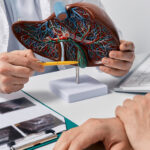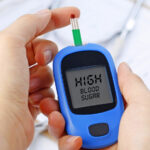Burtom ‣ Departments ‣ Nutrition and Dietetics
Language: 🇬🇧 English | 🇹🇷 Türkçe

Nutrition and Dietetics Department Overview

The Nutrition and Dietetics Department focuses on promoting health through personalized dietary guidance and education. This department employs skilled professionals, such as dietitians and nutritionists, who assess individuals’ nutritional needs, create customized diet plans, and provide education on healthy eating habits. The department plays a vital role in preventing and managing various health conditions through evidence-based nutritional interventions. Collaborating with other healthcare disciplines, it contributes to comprehensive patient care and community wellness initiatives.
Key Functions of an Nutrition and Dietetics

The key functions of a Nutrition and Dietetics Department include:
Nutritional Assessment: Conducting comprehensive assessments to evaluate individuals’ nutritional status, dietary habits, and health goals.
Personalized Diet Planning: Designing tailored diet plans to meet the specific nutritional needs and health objectives of individuals, considering factors such as age, health conditions, and lifestyle.
Medical Nutrition Therapy: Providing therapeutic nutrition interventions to manage and prevent medical conditions, collaborating with healthcare professionals for integrated care.
Education and Counseling: Offering educational sessions and counseling to individuals and groups on topics related to nutrition, healthy eating, and lifestyle modifications.
Weight Management Programs: Developing weight management strategies that focus on achieving and maintaining a healthy weight through balanced nutrition and lifestyle changes.
Specialized Diets: Creating specialized diets for individuals with specific health conditions, such as diabetes, cardiovascular disease, or gastrointestinal disorders.
Nutritional Support: Administering nutritional support, including enteral or parenteral nutrition, for individuals unable to meet their nutritional requirements through regular dietary intake.
Community Nutrition Programs: Implementing community-wide initiatives and programs to promote nutrition education, healthy eating habits, and disease prevention.
Research and Development: Engaging in research activities to advance knowledge in the field of nutrition, contributing to evidence-based practices and innovative interventions.
Menu Planning for Institutions: Collaborating with institutions such as hospitals, schools, and long-term care facilities to plan nutritious and balanced menus that meet the diverse needs of individuals.
Allergen and Dietary Restriction Management: Managing dietary restrictions, allergies, and intolerances by developing suitable meal plans that address individual needs.
Sports Nutrition: Providing nutritional guidance for athletes and physically active individuals to optimize performance, enhance recovery, and prevent sports-related health issues.
Public Health Campaigns: Participating in and leading public health campaigns to raise awareness about the importance of nutrition in preventing chronic diseases and promoting overall health.
Food Service Management: Overseeing food service operations in various settings, ensuring compliance with nutritional standards and guidelines.
Continuous Professional Development: Engaging in ongoing education and professional development to stay current with the latest research, trends, and advancements in the field of nutrition and dietetics.
These key functions collectively contribute to the mission of the Nutrition and Dietetics Department in promoting health, preventing disease, and enhancing the well-being of individuals and communities.
Situations within the scope of Nutrition and Dietetics

Situations within the scope of Nutrition and Dietetics encompass a wide range of scenarios where professionals in this field play a crucial role. Some examples include:
Clinical Nutrition: Providing nutritional interventions for individuals with medical conditions such as diabetes, heart disease, gastrointestinal disorders, or malnutrition.
Weight Management: Assisting individuals in achieving and maintaining a healthy weight through personalized diet plans, behavior modification, and lifestyle counseling.
Pediatric Nutrition: Addressing the nutritional needs of infants, children, and adolescents, including managing conditions such as childhood obesity or nutritional deficiencies.
Geriatric Nutrition: Developing nutrition plans for older adults to support healthy aging, address age-related nutritional challenges, and manage chronic conditions.
Sports Nutrition: Advising athletes on optimal nutrition strategies to enhance performance, improve recovery, and prevent sports-related injuries.
Community Nutrition Programs: Implementing community-wide initiatives, workshops, and educational programs to promote healthy eating habits, prevent nutrition-related diseases, and improve overall community well-being.
Dietary Counseling for Chronic Diseases: Offering dietary counseling for individuals with chronic diseases such as hypertension, hyperlipidemia, or renal disorders to manage and improve their conditions.
Food Allergy and Intolerance Management: Developing meal plans and dietary strategies for individuals with food allergies, intolerances, or sensitivities.
Eating Disorders: Providing nutritional support and counseling as part of a multidisciplinary team for individuals with eating disorders, such as anorexia nervosa or bulimia.
Hospital Food Service Management: Overseeing the planning and preparation of nutritious and therapeutic meals for patients in hospitals and healthcare facilities.
School Nutrition Programs: Designing school lunch programs that meet nutritional guidelines and promote healthy eating habits among students.
Corporate Wellness Programs: Collaborating with companies to implement workplace wellness programs, including nutritional workshops, seminars, and initiatives to promote employee health.
Prenatal and Postnatal Nutrition: Providing guidance on nutrition during pregnancy and lactation to ensure optimal health for both mothers and infants.
Vegetarian and Vegan Nutrition: Assisting individuals adopting vegetarian or vegan lifestyles with balanced and nutritionally adequate meal planning.
Nutrition Education for Special Populations: Developing educational materials and programs for specific populations, such as individuals with disabilities or those with cultural or ethnic dietary considerations.
These situations illustrate the diverse and impactful role of Nutrition and Dietetics professionals in promoting health, preventing diseases, and addressing nutritional needs across various life stages and settings.
Patient Experience in the Nutrition and Dietetics

The patient experience in Nutrition and Dietetics is characterized by a personalized and collaborative approach to achieving optimal health through nutrition. Here are key aspects of the patient experience in this field:
Initial Assessment: The process begins with a thorough assessment of the patient’s medical history, lifestyle, dietary habits, and health goals. This helps in understanding individual needs and challenges.
Goal Setting: Collaboratively setting realistic and achievable nutrition goals based on the patient’s health condition, preferences, and desired outcomes.
Individualized Meal Plans: Designing personalized and balanced meal plans that align with the patient’s nutritional requirements, taking into account any dietary restrictions, allergies, or cultural preferences.
Education and Counseling: Providing comprehensive education on the principles of nutrition, food choices, portion control, and the impact of dietary habits on health. Counseling sessions address any questions or concerns.
Behavioral Strategies: Incorporating behavioral strategies to support patients in making sustainable and positive changes to their eating habits. This may include addressing emotional eating, stress management, and mindful eating.
Regular Follow-ups: Regular follow-up sessions to monitor progress, address challenges, and adjust the nutrition plan as needed. This ongoing support helps patients stay motivated and accountable.
Empowerment and Ownership: Empowering patients to take ownership of their health through informed food choices and lifestyle modifications. Encouraging self-efficacy and fostering a sense of control over their well-being.
Transparent Communication: Ensuring clear and transparent communication about the rationale behind dietary recommendations, the expected outcomes, and the importance of adherence to the nutrition plan.
Collaboration with Healthcare Team: Collaborating with other healthcare professionals, such as physicians, nurses, and therapists, to ensure a holistic approach to patient care. Sharing relevant information to create an integrated and comprehensive healthcare plan.
Cultural Sensitivity: Recognizing and respecting cultural preferences and dietary habits to create nutrition plans that are culturally sensitive and align with the patient’s lifestyle.
Support for Special Diets: Offering guidance and support for individuals with special dietary needs, such as those following vegetarian, vegan, gluten-free, or other specific diets.
Nutrition for Chronic Diseases: Providing specialized nutritional support for individuals managing chronic diseases, such as diabetes, cardiovascular conditions, or gastrointestinal disorders.
Accessibility and Convenience: Striving to make nutritional advice and resources accessible and convenient for patients, considering factors such as time constraints, budget, and food availability.
Positive Reinforcement: Offering positive reinforcement and celebrating achievements, no matter how small, to motivate and encourage patients on their nutritional journey.
Continuous Education: Encouraging patients to stay informed about nutrition and providing ongoing educational resources to empower them in making informed and healthy choices.
The patient experience in Nutrition and Dietetics is characterized by a supportive and patient-centered approach, emphasizing education, collaboration, and personalized strategies for achieving and maintaining optimal health through nutrition.
Conclusion

In conclusion, the patient experience in Nutrition and Dietetics reflects a dynamic and collaborative journey toward optimal health through personalized dietary interventions. Professionals in this field engage patients in a comprehensive process, from initial assessments to ongoing support, fostering a sense of empowerment and ownership over their well-being.
The patient-centered approach in Nutrition and Dietetics involves setting realistic goals, designing individualized meal plans, and providing education and counseling to address specific health needs. Regular follow-ups and transparent communication contribute to the patient’s understanding of the importance of dietary choices in achieving and maintaining health objectives.
Cultural sensitivity, consideration of lifestyle factors, and support for special dietary needs are integral components of the patient experience. The collaboration with the broader healthcare team ensures a holistic approach to patient care, integrating nutritional interventions with other aspects of health management.
Through positive reinforcement, continuous education, and a commitment to accessibility, Nutrition and Dietetics professionals strive to make nutritional advice practical, applicable, and sustainable for patients. The emphasis on behavioral strategies, mindful eating, and addressing individual challenges contributes to lasting and meaningful changes in dietary habits.
Ultimately, the patient experience in Nutrition and Dietetics is characterized by a partnership between the healthcare professional and the individual, fostering a sense of self-efficacy and promoting a positive impact on overall health and well-being. This collaborative approach contributes to the broader goals of preventive healthcare and the enhancement of quality of life through informed and mindful nutrition.
Medical Devices Used in the Nutrition and Dietetics

In the field of Nutrition and Dietetics, medical devices are not as prominent as in other medical specialties. However, certain tools and instruments may be utilized to support dietary assessments and nutritional interventions. Here are some examples of medical devices that can be used in Nutrition and Dietetics:
Body Composition Analyzers: Devices that measure parameters such as body fat percentage, muscle mass, and water content, providing insights into an individual’s body composition.
Calorimeters: Instruments used to measure the caloric content of food items, assisting in accurate assessment of energy intake and expenditure.
Blood Glucose Monitors: Essential for individuals with diabetes, these devices measure blood glucose levels, helping in the management of carbohydrate intake and blood sugar control.
Food Scales and Portion Control Devices: Precise measurement tools for assessing food portions, aiding in the creation of well-balanced and portion-controlled diets.
Nutrient Analysis Software: Computer programs designed to analyze the nutritional content of recipes and meals, assisting dietitians in creating detailed nutritional profiles.
pH Meters: Instruments used to measure the acidity or alkalinity of certain foods, relevant for individuals with specific dietary needs or gastrointestinal conditions.
Food Allergy Testing Kits: Rapid testing kits that detect common food allergens, helping in the identification of allergenic foods and the development of allergen-free meal plans.
Digital Blood Pressure Monitors: Used to monitor blood pressure levels, particularly important for individuals with hypertension or cardiovascular conditions.
Digital Pedometers and Activity Trackers: Devices that monitor physical activity and step count, providing data to support dietary recommendations related to energy expenditure.
Smartphone Apps and Wearable Devices: Various applications and wearable devices that help individuals track their dietary habits, physical activity, and overall health.
Bioelectrical Impedance Analysis (BIA) Devices: Instruments that estimate body composition by measuring the impedance of electrical flow through the body.
Gastrointestinal Monitoring Devices: Specialized devices that monitor and record data related to gastrointestinal functions, aiding in the management of digestive disorders.
It’s important to note that while these devices can be valuable tools in specific situations, the core of Nutrition and Dietetics involves personalized counseling, education, and the development of dietary plans based on individual needs and health goals. The use of medical devices is often specific to certain conditions or situations where objective data is required for accurate nutritional assessment and planning.
Areas of interest

Get a Free Second Opinion
Experienced Burtom Medical Team is Ready to Help

I consent to Burtom Health Group using my aforesaid personal data for the purposes described in this notice and understand that I can withdraw my consent at any time by sending a request to info@burtom.com.




















